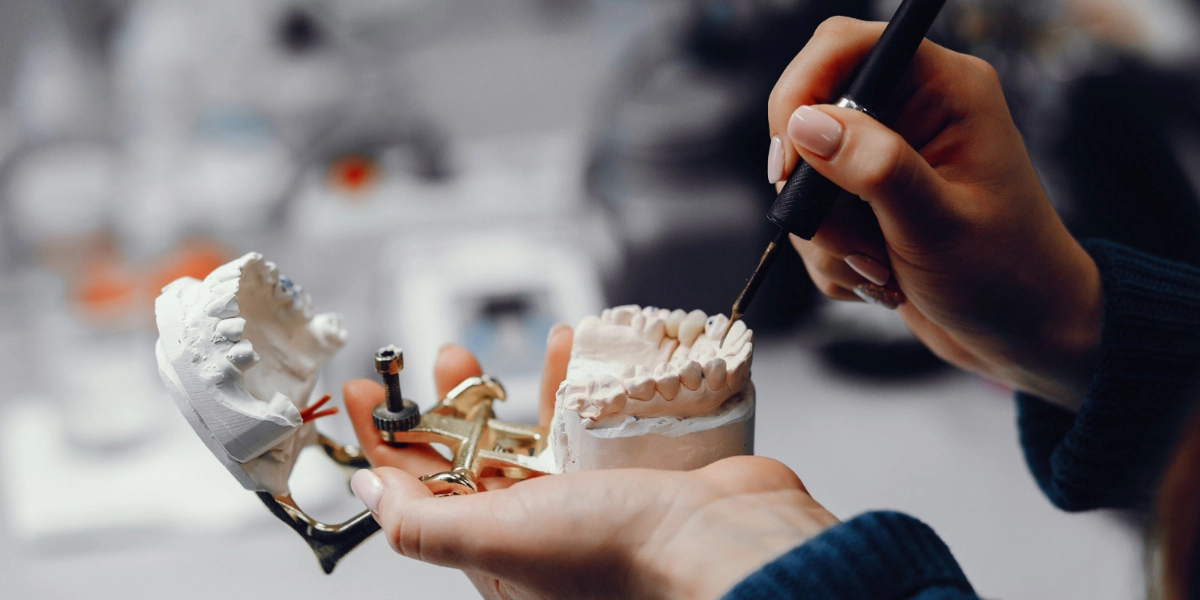Dental care has evolved significantly over the past few decades, with advanced procedures like dental implants becoming more accessible and in demand. However, the rising costs in countries like the UK, US, and Ireland have forced many to look elsewhere. Enter Hungary, particularly Helvetic Clinics, a leading dental provider offering affordable and high-quality dental implants. Hungary has become a hotspot for dental tourism, and Helvetic Clinics is at the heart of this movement.
The Rise of Dental Tourism: Why People Travel for Dental Care
The concept of dental tourism isn’t new, but it has surged in popularity recently due to rising dental care costs and long waiting times in many developed countries. Patients now look for destinations that provide excellent dental care at a fraction of the price.
Key Reasons for Choosing Dental Tourism:
- High savings on treatments
- Shorter waiting periods
- High standards of medical hygiene and care
- Combination of dental care with vacation
- Access to experienced professionals trained abroad
Why Hungary Is a Top Choice for Dental Treatment Abroad
Hungary has earned its name as one of the best destinations for dental tourism. It is often called the “dental capital of Europe.” Here’s why:
1. Competitive Pricing
Dental treatments in Hungary, especially dental implants, cost up to 70% less than in countries like the USA or UK.
2. EU-Regulated Medical Standards
Hungary adheres to strict European Union healthcare regulations, ensuring safety and quality across clinics.
3. Expert Dental Surgeons
Many Hungarian dentists are internationally trained, and many speak English fluently, eliminating language barriers for most foreign patients.
4. Strategic Location in Europe
Hungary’s central European location makes it easily accessible via direct flights from major European cities.
5. Medical Tourism Infrastructure
The country has built a strong support system around dental tourism, including treatment centers, partner hotels, airport transfers, and patient support services.
Helvetic Clinics: Excellence in Dental Implants
Among the top clinics in Hungary, Helvetic Clinics stands out due to its unparalleled patient care, modern technology, and Swiss-level dental standards.
About Helvetic Clinics
Helvetic Clinics is located in Budapest, Hungary’s vibrant capital. The clinic was established with a mission to deliver world-class dentistry while maintaining affordability. Their focus is on transparency, quality, and patient satisfaction.
What Makes Helvetic Clinics Different?
- Swiss-quality treatment protocols
- Use of cutting-edge dental technology
- Internationally renowned implantologists
- In-house laboratory for faster, more accurate results
- Transparent pricing with no hidden costs
- Multilingual staff fluent in English, French, German, and more
Understanding Dental Implants: What They Are and Who Needs Them
Dental implants are artificial tooth roots, typically made from titanium, which are inserted into the jawbone to support a replacement tooth or bridge.
Benefits of Dental Implants:
- Long-lasting and durable
- Natural appearance and feel
- Improved chewing and speaking ability
- Better oral health compared to dentures
Who Is a Candidate for Dental Implants?
- Patients with missing teeth
- Those with adequate bone density
- Individuals committed to oral hygiene
- Non-smokers or those willing to quit
Types of Dental Implant Solutions at Helvetic Clinics
Helvetic Clinics offers a range of dental implant solutions to meet various dental needs:
1. Single-Tooth Implants
For patients missing a single tooth. A crown is placed on the implant to blend naturally with other teeth.
2. Implant-Supported Bridges
Used when several teeth are missing. Implants support a bridge rather than individual crowns for each missing tooth.
3. All-on-4 / All-on-6 Implants
Ideal for patients needing a full arch restoration. Four or six implants support a full denture, offering strength and stability.
4. Immediate Load Implants
Same-day implants where the temporary crown is placed immediately after the implant procedure.
5. Bone Grafting and Sinus Lifts
For patients with low bone volume, preparatory procedures such as bone grafts and sinus lifts help make implants viable.
Step-by-Step Dental Implant Procedure at Helvetic Clinics
Understanding the dental implant journey helps patients prepare both mentally and financially.
Step 1: Online Consultation and Estimate
Patients can upload X-rays and receive a personalized quote remotely.
Step 2: In-Person Consultation
Once in Hungary, a full dental exam is conducted, including 3D imaging and a finalized treatment plan.
Step 3: Surgical Phase
Titanium implants are surgically inserted into the jawbone under local anesthesia or sedation.
Step 4: Healing and Osseointegration
Over 3–6 months, the implant integrates with the jawbone, creating a secure foundation.
Step 5: Abutment and Crown Placement
A custom abutment and crown are placed, restoring the tooth’s function and aesthetics.
Read Recommendations
The GameArchives Gameverse
Coomersu
Essential Dental Care Tips to Keep Your Teeth Clean and Healthy
Maintaining good dental health goes beyond having a bright smile. Healthy teeth and gums play a vital role in your overall well-being, as oral issues can lead to serious health problems if left untreated. From proper brushing and flossing to lifestyle habits and regular check-ups, a complete dental care routine is essential for everyone.
Brushing the Right Way
Brushing your teeth is the foundation of dental care, but doing it properly matters more than doing it often. Ideally, you should brush your teeth twice a day—once in the morning and again before bed. Use a toothbrush with soft bristles to avoid damaging your enamel and irritating your gums.
Angle your brush at 45 degrees to your gum line and use gentle, circular motions. Avoid brushing too aggressively, as it can wear down enamel and lead to gum recession. Each brushing session should last at least two minutes to ensure you’re covering all surfaces. Don’t forget your tongue—it can harbor bacteria that cause bad breath.
Choosing the Right Toothpaste
There are numerous kinds of toothpaste on the market, but the most important factor is fluoride. Fluoride strengthens tooth enamel and helps prevent decay. If you suffer from sensitivity, consider using a toothpaste formulated for sensitive teeth. People with tartar buildup or gum issues might benefit from anti-bacterial or anti-tartar toothpaste, but it’s wise to consult your dentist before switching products.
The Importance of Flossing
Flossing removes plaque and food particles from between your teeth and under your gum line—areas that a toothbrush can’t reach. You should floss at least once a day. When done correctly, flossing prevents gum disease, cavities, and bad breath.
Use about 18 inches of dental floss, wrapping it around your fingers for control. Gently glide it between each tooth, curving it into a C-shape and sliding it under the gumline. Don’t force it, and avoid snapping it into your gums, as that can cause injury.
Rinsing and Mouthwash
While mouthwash is not a substitute for brushing and flossing, it can be a helpful addition to your routine. Antiseptic mouthwashes reduce bacteria, while fluoride rinses strengthen enamel. Using a mouthwash after brushing and flossing can help freshen your breath and reach places that may have been missed.
Rinse for 30 seconds with the appropriate amount, usually one capful. Make sure not to eat or drink for at least 30 minutes after rinsing to let the active ingredients work effectively.
Diet and Dental Health
What you eat significantly affects your oral health. Sugary and acidic foods can erode tooth enamel and encourage plaque buildup. Try to limit consumption of candies, soft drinks, fruit juices, and starchy snacks. When you do eat them, rinse your mouth or brush your teeth afterward if possible.
Focus on a balanced diet rich in calcium, vitamin D, and phosphorus. These nutrients support strong teeth and bones. Foods like leafy greens, dairy products, nuts, and fish are excellent choices. Crunchy fruits and vegetables like apples and carrots help clean your teeth naturally and stimulate saliva production, which protects against decay.
Stay Hydrated with Water
Water is the best beverage for your teeth. Drinking plenty of water keeps your mouth moist, which helps wash away food particles and bacteria. Fluoridated water also helps strengthen your enamel. After meals or snacks, drinking water can reduce the acidity in your mouth and lower the risk of cavities.
Limit Tobacco and Alcohol
Smoking and tobacco use are harmful to your gums, stain your teeth, and increase the risk of oral cancer. Alcohol, especially in excessive amounts, can lead to dry mouth and contribute to gum disease. Limiting or quitting these habits greatly improves your oral and overall health.
Regular Dental Check-ups
Visiting your dentist at least twice a year is essential for maintaining healthy teeth and gums. Professional cleanings remove plaque and tartar that regular brushing can’t. Your dentist will also check for signs of cavities, gum disease, oral cancer, and other issues early on when they are easier to treat.
If you’re prone to dental issues or undergoing treatment like braces or dental implants, more frequent visits may be necessary. Don’t wait until you feel pain—many dental problems are painless until they become serious.
Dealing with Sensitive Teeth
If you experience discomfort when consuming hot, cold, sweet, or acidic foods, you may have sensitive teeth. This sensitivity often results from worn enamel or exposed tooth roots. Using toothpaste for sensitive teeth and avoiding harsh brushing can help. If the problem persists, see your dentist to rule out conditions like cavities or gum recession.
Caring for Your Gums
Healthy gums are just as important as clean teeth. Gum disease can lead to tooth loss and is linked to heart disease and diabetes. Red, swollen, or bleeding gums may indicate gingivitis, the early stage of gum disease. Good oral hygiene, including flossing and using anti-gingivitis mouthwash, can reverse this condition if caught early.
Additional Tools and Products
While a toothbrush and floss are essentials, there are other tools that can help you maintain excellent oral hygiene. These include:
- Interdental brushes: Great for cleaning between braces, bridges, or wider spaces between teeth.
- Electric toothbrushes: These often clean more efficiently, especially for people with limited dexterity.
- Tongue scrapers: Help reduce bacteria and bad breath.
- Water flossers: Use a stream of water to clean between teeth and below the gumline.
These tools can enhance your routine but should never replace the basics of brushing and flossing.
Protecting Your Teeth During Sports or Sleep
If you play contact sports, wearing a mouthguard protects your teeth from injury. Custom-fitted mouthguards from your dentist offer the best protection. For those who grind their teeth at night (a condition called bruxism), a nightguard can prevent wear and reduce jaw pain.
Technology and Innovation at Helvetic Clinics
Helvetic Clinics is committed to using the latest technology to ensure precise, safe, and comfortable treatments:
- Cone Beam CT for accurate diagnostics
- Intraoral scanners for digital impressions
- CAD/CAM systems for designing crowns
- On-site dental lab for fast delivery
Costs of Dental Implants at Helvetic Clinics
One of the most attractive features of Helvetic Clinics is their transparent and affordable pricing structure. Costs are competitive without compromising the quality of service or materials used.
Sample Price Breakdown:
| Treatment | Approximate Cost (EUR) |
| Initial Consultation | Free |
| Panoramic X-ray | €40–€60 |
| Single Implant + Crown | €1,000–€1,300 |
| All-on-4 Implants | €6,000–€8,000 |
| Bone Grafting | €300–€600 |
| Sinus Lift | €500–€1,000 |
| Tooth Extraction | €80–€150 |
| Temporary Denture | €200–€400 |
Note: Prices may vary depending on case complexity and materials chosen. Discounts may be available for combined treatments.
Types of Dental Treatments Offered at Helvetic Clinics
Helvetic Clinics is more than just a place for implants. They offer a full range of dental services designed to meet all oral health needs. This one-stop-shop model makes it convenient for international patients.
General Dentistry:
- Oral examinations and hygiene
- Tooth fillings and cavity treatment
Cosmetic Dentistry:
- Teeth whitening
- Veneers and smile design
- Composite bonding
Restorative Dentistry:
- Crowns and bridges
- Full and partial dentures
- Inlays and onlays
Orthodontics:
- Invisible aligners
- Traditional braces
Periodontology:
- Gum disease treatment
- Deep cleaning and scaling
Endodontics:
- Root canal treatments
Key Benefits of Choosing Helvetic Clinics
Choosing Helvetic Clinics comes with a wide range of benefits that extend far beyond affordable pricing.
1. High-Quality Treatment at Affordable Rates
The clinic provides world-class dental care at a cost significantly lower than in Western countries, without compromising on quality or patient outcomes.
2. Comprehensive Packages for International Patients
Helvetic Clinics offers fully managed treatment experiences, including airport pick-up, accommodation assistance, translation services, and post-operative support.
3. Fast Appointments and Short Waiting Times
Patients can often be scheduled within days or weeks—something difficult in countries with overstretched healthcare systems.
4. Expert Multilingual Staff
From consultation to recovery, multilingual professionals guide you at every step, ensuring clarity and comfort.
5. Lifetime Guarantee on Implants
Many of their implants come with a lifetime warranty when patients follow post-op care and hygiene instructions.
6. Long-Term Care and Follow-Up
Helvetic Clinics ensures long-term success of dental implants through:
- Lifetime warranties on select implants
- Free post-operative checks
- Maintenance plans and hygiene instructions
Comparing Helvetic Clinics to Clinics in the UK/US
| Feature | Helvetic Clinics | UK/US Clinics |
| Price | Affordable | Expensive |
| Technology | Latest | Varies |
| Waiting Times | Short | Long |
| Expertise | High | High |
| Extras | Travel and lodging | Rare |
Common Misconceptions About Dental Tourism
“It must be unsafe.”
Helvetic Clinics adheres to EU safety standards, ensuring safe procedures and hygienic practices.
“It’s too complicated to organize.”
The clinic offers support from consultation to post-treatment travel, making it hassle-free.
Conclusion
Choosing dental implants is a big decision, and choosing where to get them matters just as much. Helvetic Clinics in Hungary combines affordability, expertise, and modern facilities to provide some of the best dental care in Europe. With transparent pricing, comprehensive care, and world-class standards, it’s no surprise that patients from all over the world trust them for their dental needs. Whether you’re looking for a full smile makeover or a single implant, Helvetic Clinics offers a path to a healthier, brighter smile.
FAQs
Are dental implants at Helvetic Clinics covered by insurance?
Most dental tourism procedures are not covered by domestic insurance, but some policies may reimburse partial costs. Check with your provider.
How long do I need to stay in Hungary for dental implants?
Typically, 5–7 days for the first visit, and another 3–5 days for the second visit after healing.
Are dental implants painful?
Patients are given local anesthesia or sedation, making the procedure virtually painless.
What languages do the staff speak?
English, French, German, Spanish, and Hungarian are commonly spoken by staff.
What happens if something goes wrong after I return home?
Helvetic Clinics offers follow-up consultations and warranties to address post-treatment issues.
Can I get a free quote online?
Yes, patients can send X-rays or photos for a preliminary evaluation and cost estimate.
Is Budapest safe for tourists?
Yes, Budapest is one of Europe’s safest cities, with a strong tourism infrastructure.







